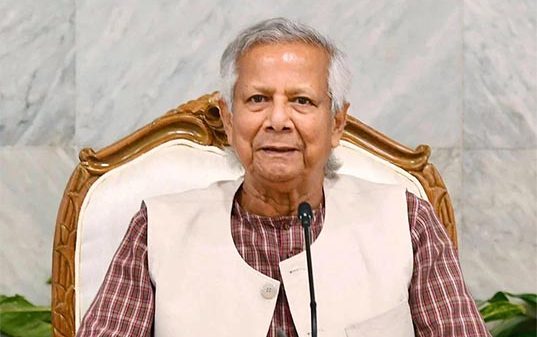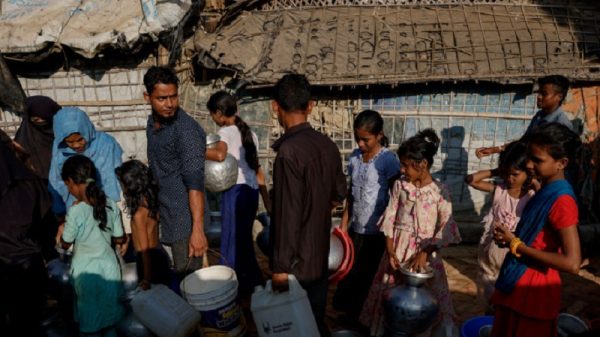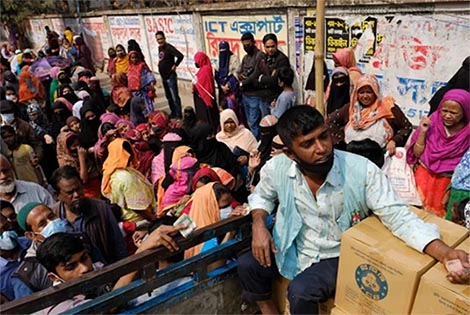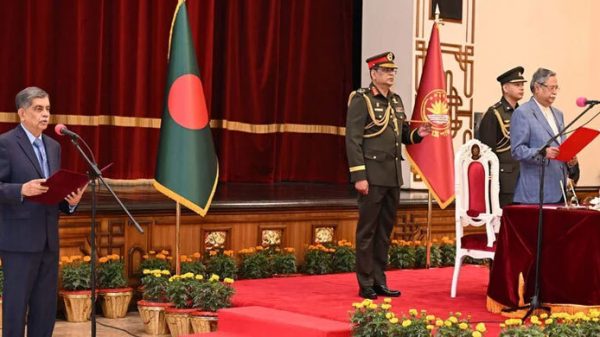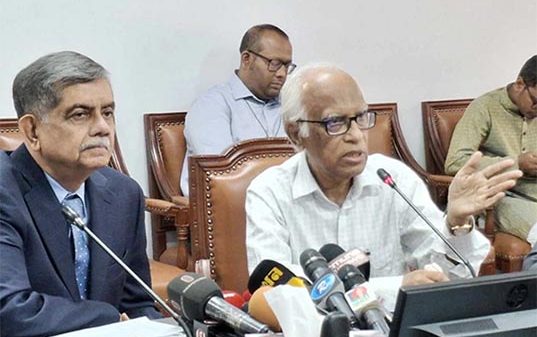‘Together, we’ll build a Bangladesh where all workers’ rights are protected’: State Minister

- Update Time : Sunday, 31 March, 2024, 05:47 pm
- 89 Time View
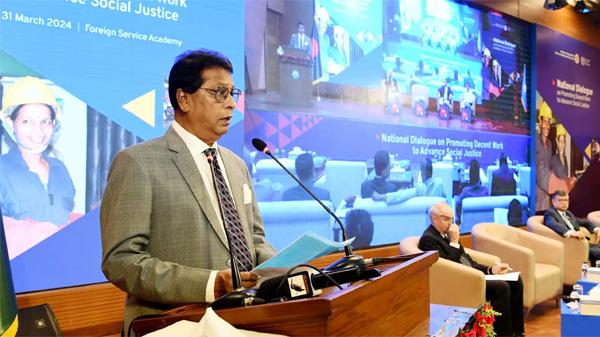
Online Desk: State Minister for Labour and Employment Md. Nazrul Islam Chowdhury has emphasized the government’s commitment to labour reform.
“Our dedication to promote decent work and advance social justice remain steadfast. Together, we will build a Bangladesh where all workers’ rights are protected, and their contributions valued,” he said while speaking as the chief guest at a national dialogue.
Foreign Secretary Masud Bin Momen underscored the importance of the multi-stakeholder dialogues on certain labour related issues.
“Employment generation and decent work are in the highest priorities during the present five-year term of the current government,” he said.
These principles are deeply integrated in our national development strategies, including the GB roadmap (2021-2026) and National Action Plan on the Labour Sector of Bangladesh (2021-2026), said the Foreign Secretary.
“These are essential for fostering sustainable growth, including increased trade and investments,” he said.
The government, industry and labour sector stakeholders convened in Dhaka for a national dialogue on ‘Promoting Decent Work for Social Justice,’ underscoring Bangladesh’s commitment to labour reform for equitable and sustained growth as the country prepares for sustainable graduation to an upper middle-income, developing country by the end of this decade.
Organized jointly, by the Ministry of Foreign Affairs, the Ministry of Labour and Employment, and the International Labour Organization at the Foreign Service Academy, the dialogue aimed at engaging the stakeholders on key issues, with a call for actionable outcomes for quality employment and decent work.
The dialogue brought together diverse views contributing to shaping a future where decent work and competitiveness of businesses are ensured and supported by national development strategies.
It facilitated constructive conversations, knowledge-sharing, and partnership-building among government officials, employers, workers, think tanks, private sector representatives, and development partners.
Mahbub Hossain, Secretary of the Ministry of Labour and Employment, said, “Our joint efforts have generated concrete, actionable policies aimed at improving the livelihoods of our workforce as well as safeguarding their fundamental rights and safety in the workplace.”
ILO Country Director for Bangladesh, Tuomo Poutiainen said to support successful LDC graduation, Bangladesh must advance key development goals, including prioritizing jobs creation, evidence-based wage policies and robust OSH standards.
“The ILO continues to stand as a committed partner to the Government of Bangladesh in achieving these objectives.”
The discussions delved into three key panel discussions: the Global Accelerator for Jobs, the development of an Evidence-Based National Wage Policy and advancing Occupational Safety and Health (OSH) in Bangladesh.
Each segment shed light on the challenges and opportunities within the world of work. Key stakeholders from the government, employers, and workers gave valuable insights and emphasized the need for a collective approach to ensure decent work and foster social justice.




